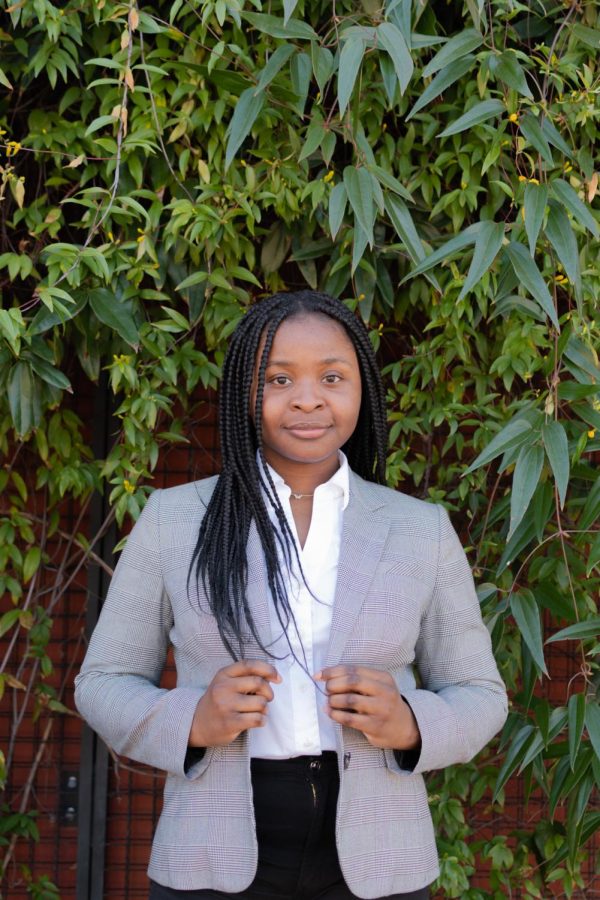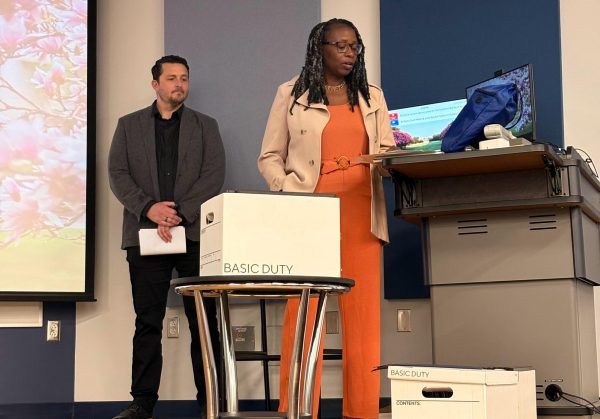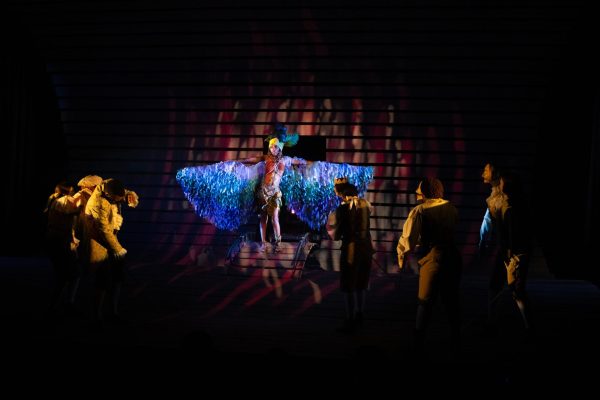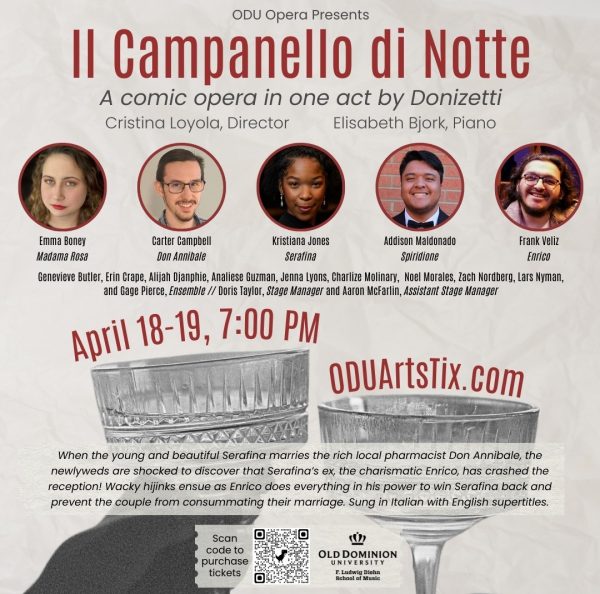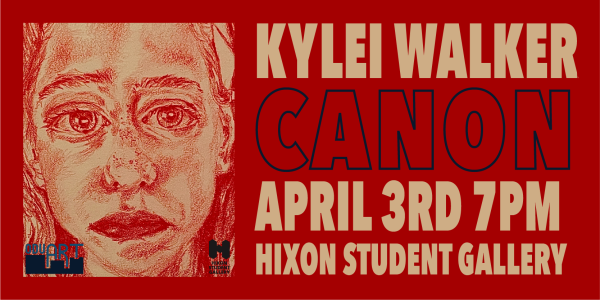ODU’s Virginia Young Poet Opens Up About Inspiration & Mental Health
Photo Courtesy of Nicholas Clark
Aderonke Adeleke is one of 24 students across the commonwealth selected for the Young Poets in the Community (YPIC) contest, founded by Virginia’s Poet Laureate, Luisa A. Igloria.
Aderonke Adeleke wears a hot pink coat when I ask her–for the millionth time–to tell the story of the poetry contest. Pink is her favorite color after all, a testament to her childlike spirit. But the vibrance of Adeleke’s coat in contrast with the gloomy day seems like a bold statement for someone so obviously quiet-natured. As she begins her story, this time on the record, I wonder if that contrast captures precisely who she is as a person: someone whose electric pink energy is only empowered by the hardships that her family has overcome.
Adeleke is the proud daughter of Nigerian immigrants whose resilience has strengthened since relocating across the Atlantic. The story of her parents’ journey and assimilation serves as the inspiration behind Adeleke’s poetry, which was recently honored by Virginia’s 20th Poet Laureate and ODU professor, Luisa A. Igloria.
The Virginia Young Poets in the Community (YPIC) contest, founded by Igloria and awarded in December of 2021, honored 24 young poets across the state ranging in age from third grade to college senior. Alongside their recognition, these students were asked to cultivate a public project, revolving around an issue of their choosing, to demonstrate how poetry can be used as “a tool for social engagement.” Adeleke, representing her home community of Chesapeake, submitted three poems; each one an ode to her family and her faith. Her chosen project: a poetry campaign at ODU celebrating writing as an outlet for those struggling with their mental health.
The poem causing the most commotion, titled “Imaginary Things,” was written to be performed, a style widely referred to as spoken word. “My old high school… asked me to write something about resilience, standing up or being productive. And I thought resilience sounded the easiest, so I sat at my computer, wrote something, and hated it.”
We laugh for a moment, sharing the sentiment as most English majors can likely relate; it’s fascinating how deeply an artist can loathe the very work that makes others sing praises. I take a sip of coffee and she continues, “The next day I went in and I was like ‘Alright, I have to write this, memorize it in a week, and then present it.’ And then I just wrote it. I memorized it, performed it, and everyone loved it. I was like ‘…ok!’ I wasn’t expecting [that reaction]…Spoken word is more of theatrics and acting, and that isn’t me.”
“Imaginary Things” is inspired by the adversity that many immigrants face upon arrival to the United States. Adeleke reveals that witnessing her own parents’ resilience evoked in her a yearning to work hard and capitalize on the opportunities that present themselves.
“My brother and parents were all born in Nigeria and they moved here in 1999,” she reflects. “‘Imaginary Things’ is symbolic of how people in America create imaginary figures like Santa Claus or the Easter Bunny… all these [figures] that we believe will bring good things… But in my family, that wasn’t reality. We had to work hard… We had more serious, more tangible things to worry about. For people who live in America, who were born and raised here, they don’t understand half the struggles that my family has had to face, so to them, the things that I talk about are imaginary things, too.”
After the unexpected surge of acclaim from her performance of “Imaginary Things” at Indian River High School in Chesapeake, Adeleke shared the success story with her creative writing professor, Heather Weddington. Little did she know that Weddington would in turn urge for the poem, along with two additional items, to be submitted the next day to YPIC.
“She’d never heard it or anything so I was shocked that she reached out to me, saying ‘Here’s the application, submit because it’s due tomorrow.’ And I was like, ‘Tomorrow?’” Adeleke giggles while recalling the urgency of sitting in front of her computer that night, gathering old notes and clips of writing to include in her submission. “I just finished it real quick, sent it in, and two weeks later, ‘Congratulations, you’re a Young Poet Laureate in Virginia!’ and I was like, ‘What!?’”
The two poems submitted alongside “Imaginary Things” communicate intimate messages of appreciation for the way that Adeleke was raised and the faith which her parents passed along to her. “I have all I need” presents three gutwrenching stanzas about growing up without yet remaining grateful. “Remember Him,” originally a song, is “just about remembering God when I’m young, and have a thousand things to do for my future, and when I’m older and have bills and a family to take care of; just remembering God in every season.”
Adeleke makes note of the honor she felt in being selected for such a prestigious award, but she’s honest when explaining that it took a lot of time for her to fully understand what it was and how she could’ve won. She maintains her bubbly demeanor while describing that the fear of missing an opportunity is what motivates her to apply for these sorts of things. But the drive to achieve all that she can at such a young age is no small feat. Her instinct to shrink what in actuality is a big deal is a habit that many college students default to, especially when they don’t feel deserving. But Adeleke is working on changing that, and in doing so she wants to inspire others.
“People with talents and skills should always find a place to show it,” she urges. “If someone from out of nowhere asks you to do something, don’t be afraid to say yes! Everything that I have, all of the opportunities that I’ve received, are all because of my fear of missing out, or missing an opportunity. I always say yes, yes, yes.”
Adeleke’s poetry campaign will feature a series of submission boxes strategically placed around ODU’s Webb Center and the Batten Arts & Letters building, open for anyone to drop in their own poems. Starting Mar. 13, submissions will be collected in anticipation of “Poetry Night: The Power to Release,” to be hosted by the English Department on Apr. 22 from 6-7 p.m. on the second floor of Webb Center in the Ches-Port Room. The intention is to showcase how cathartic the writing process can be, especially for those struggling with mental health and wellness.
“The darkest things that happened in my life, and to my family, are the things I draw from most,” says Adeleke. “Happiness is great to write about but when you talk about…times when it feels like everything is caving in and you could just suffocate, writing really helps me to change my perspective. Because I was in it, but when I write I feel like I’m outside of it. When I write, I feel omnipotent.”
—
To learn more about the stories of African immigrants and how to support them, Adeleke suggests checking out BAJI: Black Alliance for Just Immigration and AICS Helping Hands.
To read more of Adeleke’s work, visit https://express.adobe.com/page/pE3gapjEEzdPG/.
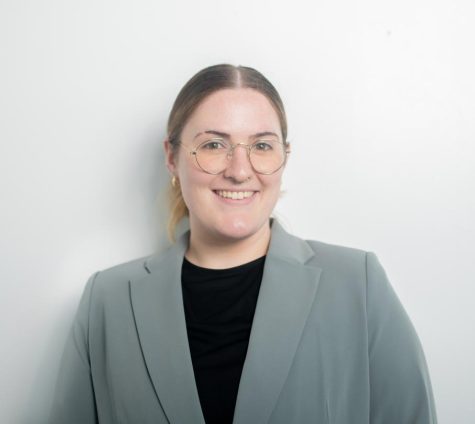
Dana Chesser (She/Her) is an English/Journalism major and second-semester writer for the Mace & Crown. Alongside her role as A&E Editor, she works...
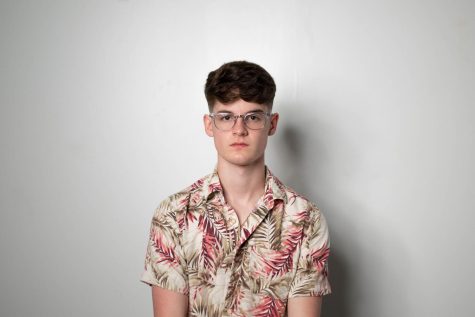
Nicholas Clark is the photography editor. He majors in photography and print media. For fun, he likes to play golf and take pictures. Email him at nclar005@odu.edu


